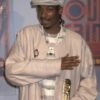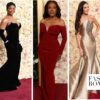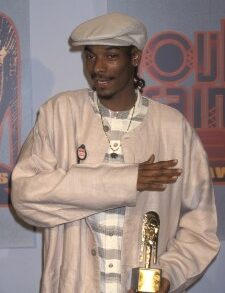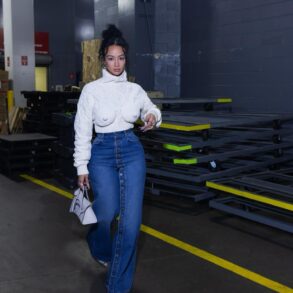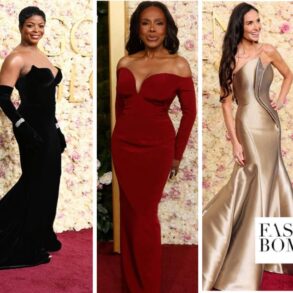True to our site’s name, sometimes we catch a vibe with the stars we interview and they drop more gems than we’re able to use. “Outtakes” is a series of excerpts from VIBE profiles, Q&As, and cover stories that we just couldn’t leave on the cutting room floor.
Vic Mensa started a new era of his professional music career with the release of his latest album Victor last month. Ahead of its release, the Chicago rapper highlighted details of the creative process that resulted in the introspective LP.
From religion and being the hero in his own story, to the full-circle moment fulfilled by collaborating with Jay Electronica, the conversation went beyond the music. Detailing his work and his goals, the “Orange Soda” performer opened up with more details on his brand 93 Boyz and his impactful voyage to Ghana.
Read below for excerpts from our interview with Vic Mensa.
-
On The Collaborative Effort Of ‘Victor’
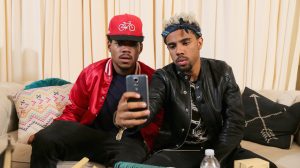
Image Credit: Neilson Barnard/Getty Images for Samsung Galaxy “It was amazing. I mean pretty much all the collaborations on the album are personal friends of mine. [The] only person who I think I met in really the process of creating an album would be D Smoke. But Common I’ve known a long time. Common’s my favorite rapper. Jay Electronica, I’ve known a long time, also, one of my favorite rappers. Thundercat [I’ve] probably known about 11 years now. And Ty [Dolla $ign], I think I’ve known seven years.
I like to collaborate with people that I have a relationship with. I think that’s the basis of it. It’s like, when you do it that way, even like G-Eazy I’ve known over 10 years, and Chance [The Rapper], I guess I’ve known longer than all of those people, of course. When you collaborate with people that you have an actual personal relationship with… how much does it impact what you do, if you’re writing about or diving into or interviewing somebody that you already know?
It can just guide you in so many ways. You never know what they’ll do, but you know what you want them to do.”
-
On The Legacy Of Chicago As Hip-Hop Turns 50
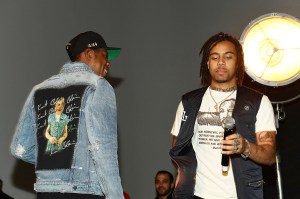
Image Credit: Matt Winkelmeyer/Getty Images “I would say Chicago’s impact on Hip-Hop is massive and just culture in general, fashion, lingo, and pop culture as a whole, owes so much to Chicago to the point where people in other cities don’t even know how they develop the sound they have sometimes. We were in London and this girl was really trying to convince us that drill music was from London. I’m like, ‘You think tea and crumpets created this drill music?’ Now they do have some dope drill music in London though, and it’s like, I think drill music just speaks to people globally, because the guys that’s really living that life in the trenches in London, it is critical for them. This is the music of the underbelly because there’s a drill music scene in Ghana that’s massive, [and] super influential to the culture over there.
Beyond that, I think the fashion sense and a lot of the conscious Hip-Hop music owes a lot to Chicago, obviously Common being hugely influential. Lupe Fiasco, being hugely influential on what I do. And then Kanye. Kanye is the most celebrated—and at this time, probably denigrated as well—but the most Grammy award-winning, just widely impactful artist maybe ever, definitely of a generation. [He] also brought a huge degree of consciousness to his music [and] I know that’s been hugely influential to everybody and ever since. And everybody around him too, from Don C, to Ibn Jasper and Virgil Abloh. I mean, that’s Chicago, that’s massive.
It’s completely undeniable, and I find Chicago’s really revered around the planet. It’s also very feared and thought of as being extremely dangerous. People [are] scared to even meet people from Chicago sometimes, because of a lot of fear-mongering and a lot of propaganda in the media about Chicago. But at the same time using the slang, it’s ‘gang gang’ this [and] ‘squad’ that, and that’s all Chicago sh*t.”
-
On What A Music Industry Boycott Could Look Like
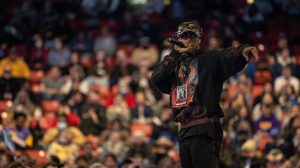
Image Credit: Jim Vondruska/Getty Images “I think it would be not releasing music, not performing. I mean, I’m not a labor rights activist. I don’t really know how these things work, but I can only imagine how much things would be impacted if Black artists and entertainers, et cetera, opted to not perform in pursuance of some equity or some goal. It’s the same thing in sports.
A vast overwhelming majority of the players [are Black] and the ones that are bringing the value, and yet own a sliver, a fraction of what’s actually going on. What would happen if they said, ‘we not playing?’ ‘We not playing until something changes.’
What happens if the rappers and the Black artists say, ‘We’re not putting out music, we’re not performing. We’re not fueling your machine, until the structure of this thing is changed?’ That’s just an imagination.”
-
On 93 Boyz And The ‘Books Before Bars’ Initiative
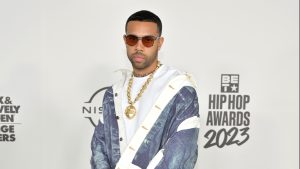
Image Credit: Derek White/Getty Images “93 Boyz is a cannabis company, and so we launched as the first Black-owned cannabis brand [in Chicago] to legally sell weed. And that’s a huge blessing. I’ve been selling weed since I was a little kid. So it’s dope to be able to do it on a grand scale and in a legit way. At the same time, it’s a reflection of many of the same issues I’ve been talking about, that this is a plant that was demonized and outlawed because of its association with us. And now that it’s been legalized, in my state [Black people represent] less than 1% of the ownership, and that’s classic America.
In the position that I have [with a] foot in the door and seat at the table, my intention is to open the door wider and create our own tables and help to provide freedom for people who have had it stolen from them. So if I can’t physically release them from prison, what I thought I should do is help to mentally release them. I’ve been sending books into the prison since I was 17. So it just came to me like, man, do that through the company. Buy a bunch of books, and send them out through the company. We’ve been sending books to people in prison across the nation.”
-
On Writing His Own Book
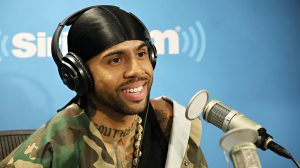
Image Credit: Cindy Ord/Getty Images “I’ve been writing a book for some years now. I haven’t really written any pages this year, but in other years I’ve written a lot. I think I’m nearly done. It’s called Black Skin Under Night Sky, and it is a collection of essays. And it largely discusses the gray area between the Black American experience and the Black African experience, and similarities and the differences and everything that says about me and says about the world, my place in it, my reflection on it. So that’s going to be my first book. I’m sure at some point in time I’ll write more books. Maybe I’ll write something in a more memoir style. This always felt to me like a little bit more palatable because it’s short-form writing as opposed to knowing how this starts and where. But one day I definitely would love to write a memoir. I’m sure I’ll write plenty of books. I just love to write.”
-
On His Journey To Ghana
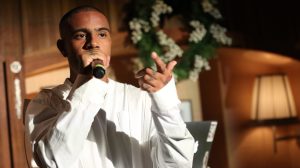
Image Credit: Monica Schipper/Getty Images for Saks “I think one of the dopest things that I experienced being back in Ghana recently was taking a group of kids from Chicago. Teenagers from the South and West sides and just seeing how they were impacted by coming to Ghana. James Baldwin has a quote where he says, ‘Know from whence you came, then there are absolutely no limitations to where you can go.’ I think oftentimes we as a people suffer from the erasure of our memory. We don’t know. And so how can we really fully understand where we are today or where we’re supposed to go if we don’t know ourselves?
Being able to take these kids to Ghana and give them a window into their true self beyond 51st Street or Austin or 63rd Street, 79th Street; we live and die for these blocks with numbers. We are numbers, branded prisoners to this environment that does not belong to us, does not love us, doesn’t represent us, [and] doesn’t hold our real history. Being able to take these kids and just show them this is a window into who you are before. Do with that as you may, that’s empowering though. So that hit me differently.”
This post was originally published on this site be sure to check out more of their content.

